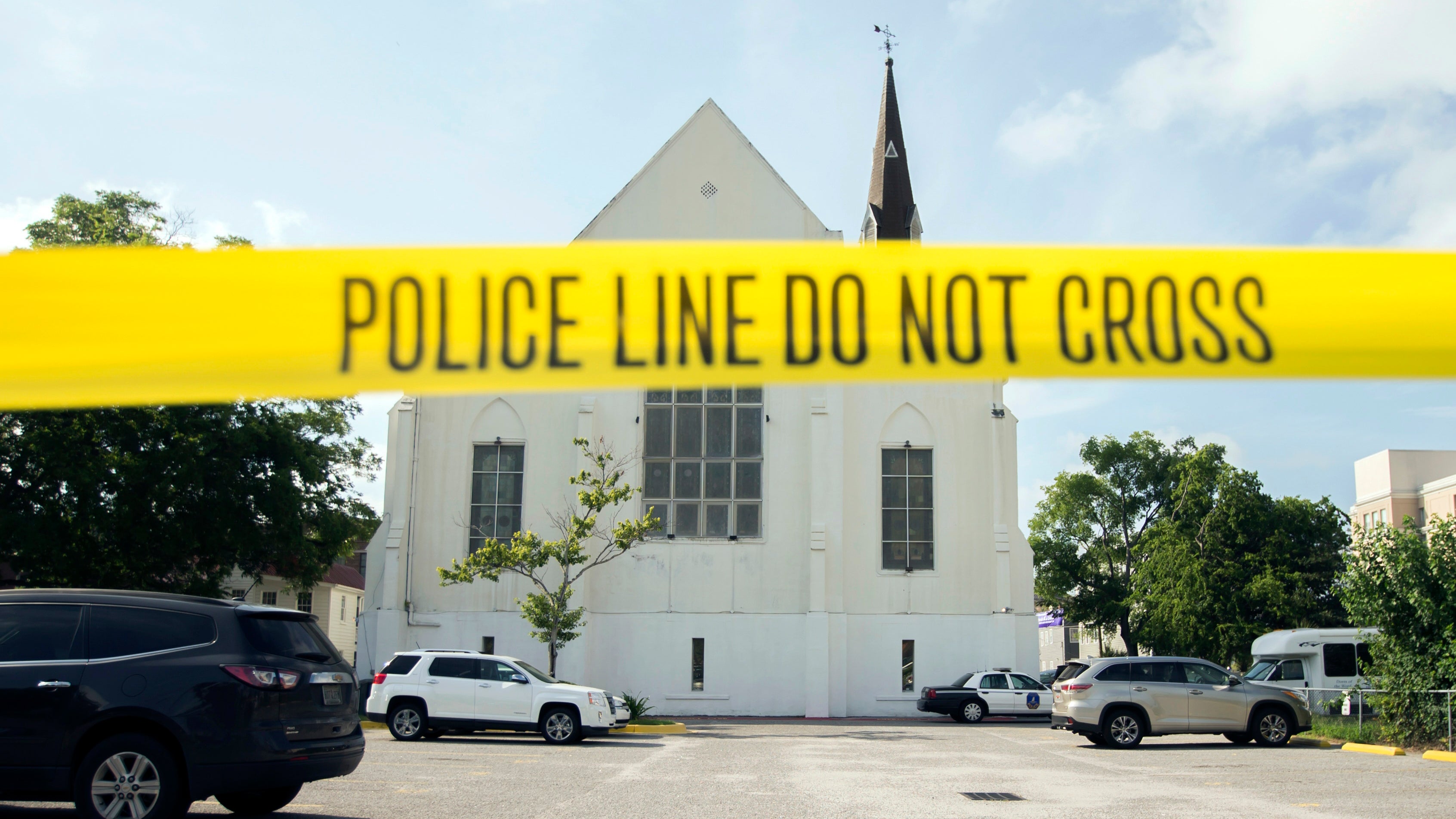Appellate court arguments set for Charleston church shooter
Attorneys for the man sentenced to federal death row for the racist slayings of nine members of a Black South Carolina congregation are set to formally argue that his conviction and death sentence should be overturned

Your support helps us to tell the story
From reproductive rights to climate change to Big Tech, The Independent is on the ground when the story is developing. Whether it's investigating the financials of Elon Musk's pro-Trump PAC or producing our latest documentary, 'The A Word', which shines a light on the American women fighting for reproductive rights, we know how important it is to parse out the facts from the messaging.
At such a critical moment in US history, we need reporters on the ground. Your donation allows us to keep sending journalists to speak to both sides of the story.
The Independent is trusted by Americans across the entire political spectrum. And unlike many other quality news outlets, we choose not to lock Americans out of our reporting and analysis with paywalls. We believe quality journalism should be available to everyone, paid for by those who can afford it.
Your support makes all the difference.Attorneys for the man sentenced to federal death row for the racist slayings of nine members of a Black South Carolina congregation are set to formally argue that his conviction and death sentence should be overturned.
Oral arguments have been set for May 25 before the 4th U.S. Circuit Court of Appeals in the case of Dylann Roof according to federal court records.
In 2017, Roof became the first person in the U.S. sentenced to death for a federal hate crime. Authorities have said Roof opened fire during the closing prayer of a 2015 Bible study session at Mother Emanuel AME Church in Charleston raining down dozens of bullets on those assembled.
Serving as his own attorney in the sentencing phase of his trial, the self-avowed white supremacist neither fought for his life nor explained his actions, remorse, saying only that “anyone who hates anything in their mind has a good reason for it.”
Roof's 2017 appeal to the 4th Circuit came as no surprise, as transcripts of hearings to determine his trial competency revealed that Roof told his lawyers he’d seek appeals to drag his case out as long as he could. With the passage of time, Roof explained, he expected white supremacists to take over the U.S., pardon him for the killings and make him governor of South Carolina.
Following his federal death penalty trial, Roof was given nine consecutive life sentences after he pleaded guilty in 2017 to state murder charges, leaving him to await execution in a federal prison and sparing his victims and their families the burden of a second trial.
After that sentencing, Solicitor Scarlett Wilson — who had also been pursuing the death penalty — called the deal “an insurance policy for the federal conviction," ensuring that Roof would spend the rest of his life in prison, should the federal sentence not stand.
Wilson also said that she felt more confident a federal death sentence would be carried out under the newly minted Trump administration that it would have been under a Democratic one. At the time, there was anticipation that then-President Donald Trump might swiftly resume federal executions, following cessation of the practice under several several previous administrations.
Trump’s decision to reinstate federal executions didn't come until 2020, however, when his Justice Department ended a 17-year hiatus, going on to oversee a total of 13 federal executions. Due to his remaining appeals, Roof's case was not eligible for execution at that time.
President Joe Biden who as a candidate said he’d work to end federal executions, hasn't spoken publicly about capital punishment since taking office. Earlier this year, four federal death row inmates told The Associated Press that Biden’s silence has them on edge, wondering whether political calculations will lead him to back off far-reaching action, like commuting their sentences to life in prison.
Biden could instruct his Justice Department not to carry out any executions during his presidency, thus sparing inmates’ lives for at least four years but leaving the door open for a future president to resume them.
If unsuccessful in his direct appeal to the 4th Circuit, Roof could file what's known as a 2255 appeal, or a request that the trial court review the constitutionality of his conviction and sentence. He could also petition the U.S. Supreme Court or seek a presidential pardon.
___
Meg Kinnard can be reached at http://twitter.com/MegKinnardAP.